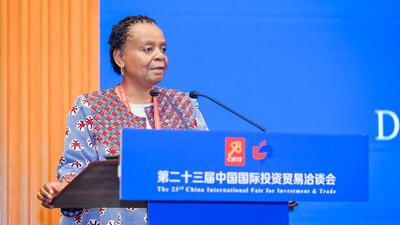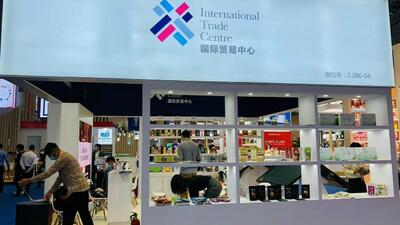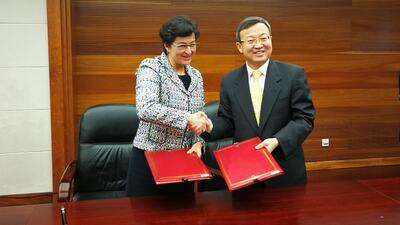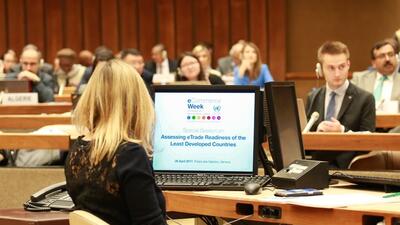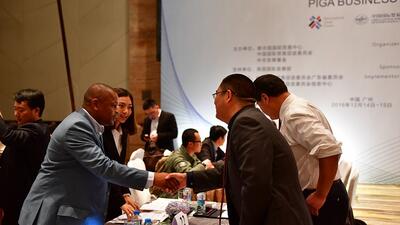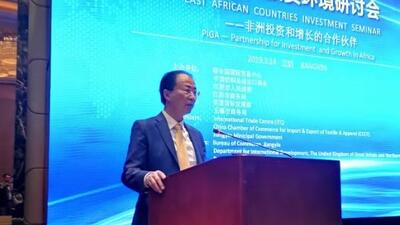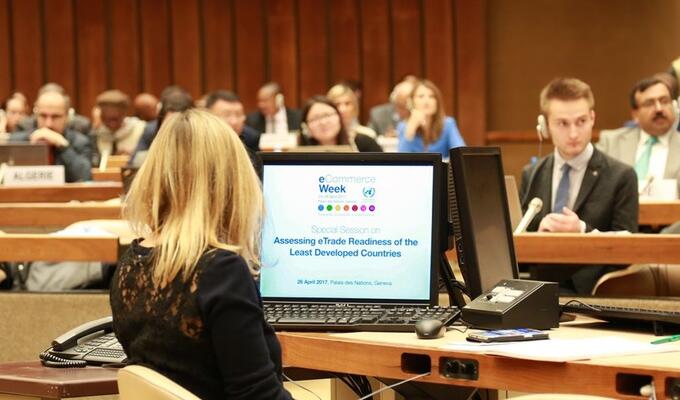
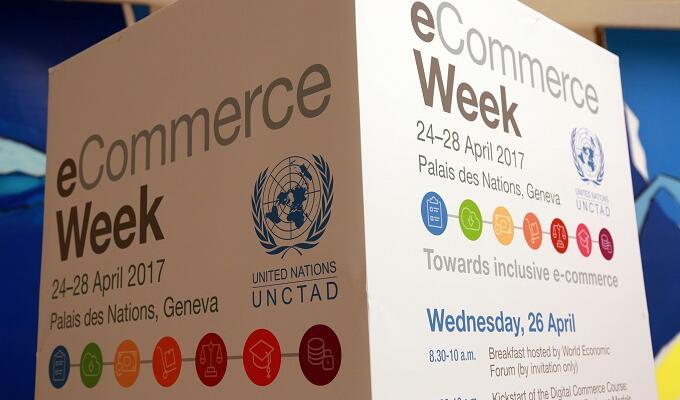

Small is powerful: SMEs to gain most from e-commerce
E-commerce can turn small firms into global players, say experts during UNCTAD E-Commerce Week.
E-commerce provides a way for those who have been traditionally marginalized in international trade – including young people, women, rural workers and residents of least developed countries – to become global players.
That’s according to business leaders and policymakers gathered at the UNCTAD E-Commerce Week from 24-28 April in Geneva.
The International Trade Centre (ITC) led and participated in sessions throughout the week. It also launched an e-commerce YouTube playlist and a collection of e-commerce publications.
Exploring e-commerce potential
E-commerce makes up 12% of global trade in goods, and is on the rise.
The benefits of e-commerce are many: it allows for a larger variety of exports in terms of products and markets. For example, a digital exporter in Peru reaches on average 25 countries, while a traditional one reaches only three.
It is also more welcoming to new entrants. Newcomers account for 20% of online sales annually, while their share in traditional exports is around 2%, said ITC Chief Economist Marion Jansen at a session on e-commerce in China on 24 April.
In China, e-commerce giant Alibaba Group has created more than 30 million jobs, including 19 million indirect jobs, according to Vice President Hongbing Gao. Nearly half of active online stores owners in the Alibaba retail ecosystem are women.
Mr. Gao shares insights on the future of e-commerce:
‘Solve problems along the way’
Headlining the weeklong event was Jack Ma, founder and executive chairman of Alibaba Group.
‘Solve problems on the way,’ Mr. Ma said at a high-level panel on 25 April. ‘When everything is ready, entrepreneurship is not needed.’
Less-developed countries have an advantage in the digital world, according to Mr. Ma.
‘E-commerce is designed for developing countries,’ he said. ‘Why do China’s e-commerce companies grow faster than those in America? Because China’s infrastructure was so bad and the U.S. infrastructure was so good.’
He explained: Chinese businesspeople had to find a way to work around the issues.
To make it easier for entrepreneurs, he said policymakers should ‘make very simple rules and laws for cross-border trading.’ Write two-page regulations rather than 2,000-page rules.
Tackling challenges ahead
Connecting and getting online is just the beginning. For small and medium-sized enterprises (SMEs) to succeed online, there are still major challenges that need to be addressed – not all of them digital.
Success requires engaging across the whole e-commerce chain, from establishing an online business to setting up international e-payments, to cross-border delivery and aftersales services.
Four billion people in developing countries remain offline, and of 940 million people living in least developed countries, less than 10% use the internet.
Empowering women online
‘The digital divide is big for SMEs – the divide is doubly big for women SMEs,’ said ITC Executive Director Arancha González, who moderated a session on supporting small firms in e-commerce.
‘E-commerce is the only option for business in Syria,’ said entrepreneur Rania Kinge. ‘You’re not going to find a solution to the war, but you can find solutions to problems that entrepreneurs face.’
Ms. Kinge works with displaced women in Damascus who oftentimes work without running water and electricity. Two weeks ago her company exported to Japan for the first time, despite the lack of a proper payment system and the ongoing war.
‘If you have the intention to make things better, then you can,’ she said.
‘From computer literacy to logistics and marketing, we need to ensure women have the knowledge and skills to e-trade,’ Ms. González said.
At the high-level panel, Jack Ma said in closing: ‘This century is not a competition of muscles or knowledge. It’s a competition of caring. If you want to be successful, care for others. Women can do a much better job than men.’




